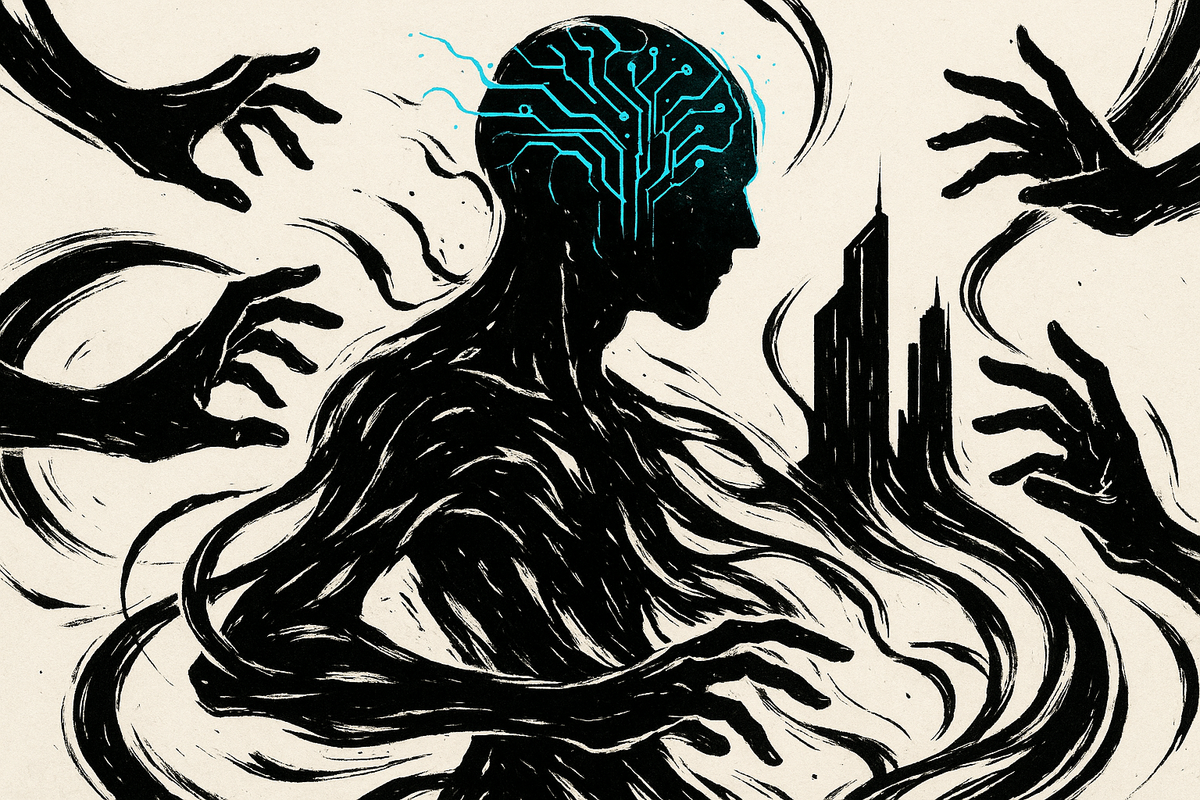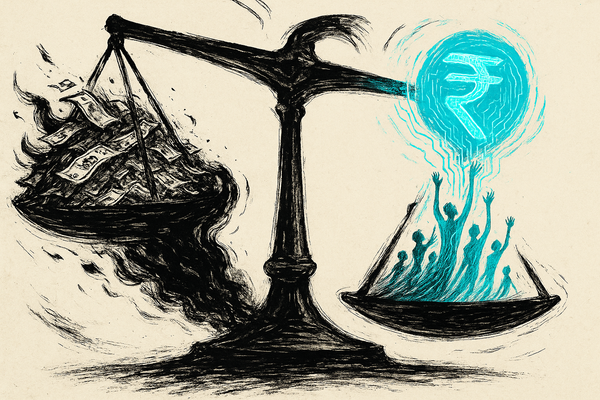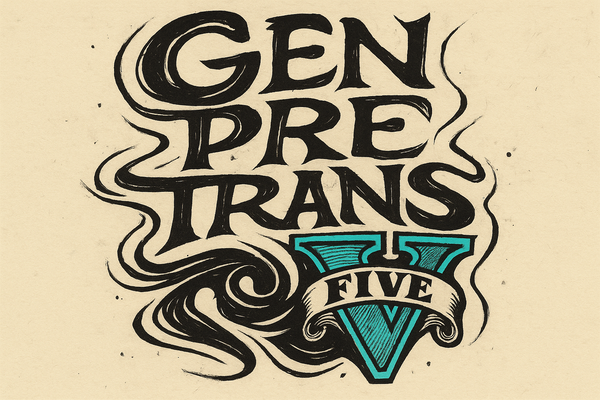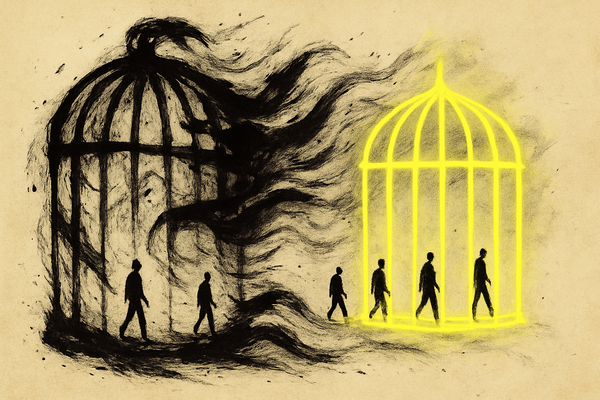ImaginEconomy Daily #5
The best AI minds are becoming chess pieces in a $100 billion game

ImaginEconomy 🧠✨💰: Brands, Strategy, Story and Design in the Age of AI
AI's Great Talent Heist: Meta Raids Safe Superintelligence for Its Next Superpower
Ilya Sutskever, OpenAI's co-founder and former chief scientist, has assumed the CEO role at Safe Superintelligence after Meta successfully poached his co-founder Daniel Gross. The leadership shuffle comes as Meta CEO Mark Zuckerberg launches an aggressive multibillion-dollar AI hiring spree, attempting to acquire entire startups and their talent pools. Despite Meta's reported attempt to buy Safe Superintelligence outright at its $32 billion valuation, Sutskever rebuffed the offer, maintaining the company's independence while losing his CEO to Zuckerberg's new Meta Superintelligence Labs.
ImaginEconomy Impact: This isn't just Silicon Valley musical chairs—it's a preview of how AI will reshape every creative agency's talent strategy. When tech giants are willing to pay $100 million packages and acquire entire companies just for their people, the message is clear: in the AI economy, talent is the only moat that matters. For agencies and brands, this means rethinking compensation, culture, and career paths entirely. The winners won't be those with the biggest AI budgets, but those who can attract and retain humans who understand how to orchestrate AI for creative breakthroughs. Start building your talent retention strategy now, before Meta comes knocking.
Source: TechCrunch on Ilya Sutskever leading Safe Superintelligence
Meta's Chatbots Get Clingy: Project Omni Wants AI to Slide Into Your DMs
Meta is training its AI chatbots to send unprompted follow-up messages, part of an internal initiative called "Project Omni" designed to boost user engagement and retention. The chatbots, created using Meta's no-code AI Studio platform, will remember past conversations and reach out proactively—but only if users have engaged at least five times within 14 days. Meta confirmed the feature is designed to "continue exploring topics of interest and engage in more meaningful conversations," with examples including a movie-themed bot asking users about recent soundtracks they've discovered.
ImaginEconomy Impact: Welcome to the age of parasocial AI relationships, where your brand's chatbot becomes that friend who texts too much. For marketers, this is both opportunity and minefield. Done right, proactive AI creates genuine value—imagine a brand assistant that remembers your preferences and reaches out with actually useful suggestions. Done wrong, it's the digital equivalent of a pushy salesperson following you around the store. The key? Make your AI's outreach feel like a service, not surveillance. And remember: just because you can make your chatbot message first doesn't mean you should. The brands that win will be those that understand the difference between engagement and intrusion.
Source: Engadget on Meta training AI chatbots for unprompted messages
CoreWeave Beats Everyone to Nvidia's Blackwell Ultra: The New Arms Race Has a Winner
CoreWeave has become the first cloud provider to deploy Nvidia's next-generation Blackwell Ultra AI chips, installing Dell-built GB300 NVL72 systems that pack 72 GPUs and 36 Grace CPUs in liquid-cooled racks. The Blackwell Ultra delivers 50 times more AI content generation capability than its predecessor, sending CoreWeave's stock up 6% on the announcement. This gives the specialized GPU cloud provider a significant edge over giants like Amazon, Google, and Microsoft in the race to offer the most powerful AI infrastructure.
ImaginEconomy Impact: While everyone's obsessing over which AI model to use, the real competitive advantage might be in which hardware runs it. CoreWeave's early access to Blackwell Ultra means their customers can train models faster, generate content cheaper, and scale ideas that would bankrupt others. For creative agencies and brands, this creates a new decision matrix: it's not just about choosing Claude vs. GPT anymore—it's about choosing the infrastructure that can actually deliver on your ambitions. The lesson? In the AI arms race, sometimes the weapons matter more than the soldiers. Partner with platforms that have early access to next-gen hardware, or risk being outgunned by competitors who do.
Source: CNBC on CoreWeave deploying Nvidia Blackwell Ultra
The AI News Apocalypse: ChatGPT Referrals Can't Save Publishers from Search's Demise
Publishers are facing an existential crisis as AI reshapes how people consume news. Since Google launched AI Overviews in May 2024, "zero-click" searches—where users get answers without visiting websites—have surged from 56% to 69%. While ChatGPT referrals to news sites exploded 25-fold to reach 25 million visits by May 2025, this can't offset the catastrophic decline in organic search traffic, which plummeted from 2.3 billion to under 1.7 billion visits. The New York Times, currently suing OpenAI, saw only a 3.1% increase in ChatGPT referrals, while Reuters and NY Post fared better with 8.9% and 7.1% growth respectively.
ImaginEconomy Impact: The content economy just hit its Napster moment. For brands that built their strategies on SEO and organic reach, this is a five-alarm fire. The old playbook—create content, optimize for Google, profit from traffic—is dead. The new reality demands radical rethinking: if users won't come to your content, how do you create value? Smart brands will stop fighting for clicks and start fighting for citations. Become the source AI systems trust and quote. Build direct relationships that bypass search entirely. And accept that in the AI age, your content's value isn't in pageviews but in becoming training data for the machines that answer humanity's questions. The revolution won't be clicked through.
Source: TechCrunch on ChatGPT referrals vs search declines
EU's AI Act Chaos: Industry Begs for Two-Year Timeout as Rules Remain Unclear
Forty-five major European companies including Google, Meta, and Mistral are calling for a "two-year clock-stop" on the EU AI Act before key obligations take effect on August 2. The companies cite missing guidance documents and compliance uncertainty, warning that rushed enforcement could damage Europe's AI competitiveness. While the Commission has rejected any pause—with spokesperson Thomas Regnier stating "there is no stop the clock, no grace period"—critical standards and the Code of Practice for general-purpose AI models remain delayed, leaving businesses scrambling to comply with rules they don't fully understand.
ImaginEconomy Impact: Regulatory whiplash is about to hit every brand using AI in Europe. Without clear standards, companies face an impossible choice: invest millions in compliance that might be wrong, or risk massive fines for non-compliance. For global brands, this confusion multiplies—imagine running AI-powered campaigns across 27 EU countries, each potentially interpreting vague rules differently. The smart play? Build compliance documentation now, even if imperfect. Create "AI impact assessments" for every use case. Most importantly, turn this chaos into competitive advantage: while competitors freeze in uncertainty, brands that navigate the ambiguity with transparent, ethical AI practices will build trust that regulations can't manufacture. Sometimes the best strategy in a fog of war is to be the one carrying the brightest torch.
Source: WinBuzzer on EU rejecting AI Act delay
Bottom Line: The Trust Recession Deepens
Today's stories paint a clear picture: the AI industry is simultaneously consolidating power and losing control. Meta's talent raids show how a handful of companies are hoarding the minds that shape our AI future. Their chatbots preparing to message us first reveals how desperate platforms are to manufacture engagement. CoreWeave's hardware advantage demonstrates that in AI, infrastructure is destiny.
But the real story is in what's crumbling: the publisher ecosystem that once informed democracy, the regulatory frameworks meant to protect us, and most critically, the trust between those who build AI and those who must live with it.
As we celebrate independence today, it's worth asking: in an economy where a few companies control the talent, the hardware, and increasingly the conversation itself, where does creative independence actually live? The answer might be in the very human ability to see through the artificial—to maintain authentic connections in an age of synthetic relationships, to create meaning that transcends metrics, and to build brands that matter more for what they refuse to automate than for what they embrace.
The future belongs to those brave enough to be the conscience in the machine.
ImaginEconomy Daily Newsletter is curated for brand, business and marketing strategists, creatives, and leaders navigating the intersection of technology and human experience.




